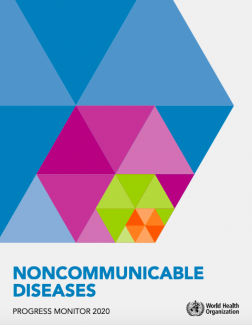Noncommunicable Disease Progress Monitor

Noncommunicable diseases are the leading cause of premature death globally.
Every year, 41 million people die from heart attacks, stroke, cancer, chronic respiratory diseases, diabetes or a mental disorder.
Despite the concerning trends and figures, global efforts are not enough to prevent and reverse the harm.
In order to effectively reduce NCDs globally, there needs to be a clear understanding of the factors that contribute to illness and the efforts that are being made throughout the world to address the critical issues.
In response, the WHO has developed ‘best buys’ – a set of 16 practical and cost-effective interventions that work and can be delivered at the primary level. The aim of the 'best buys is to promote health and prevent disease through introducing policies such as increasing tobacco taxes; restricting alcohol advertising; and reformulating food products with less salt, sugar and fat.
Explanatory Note
This report presents information for each country related to their achievement of the NCD progress monitoring indicators. The profiles also include information on the population, percentage and number of deaths from NCDs, and the risk of premature death from the four main NCDs (cardiovascular diseases, cancer, diabetes or chronic respiratory diseases) – the indicator used to monitor the Sustainable Development Goal target 3.4 on NCDs. The data presented in the country pages are derived from several sources, each of which is explained in the following notes.
